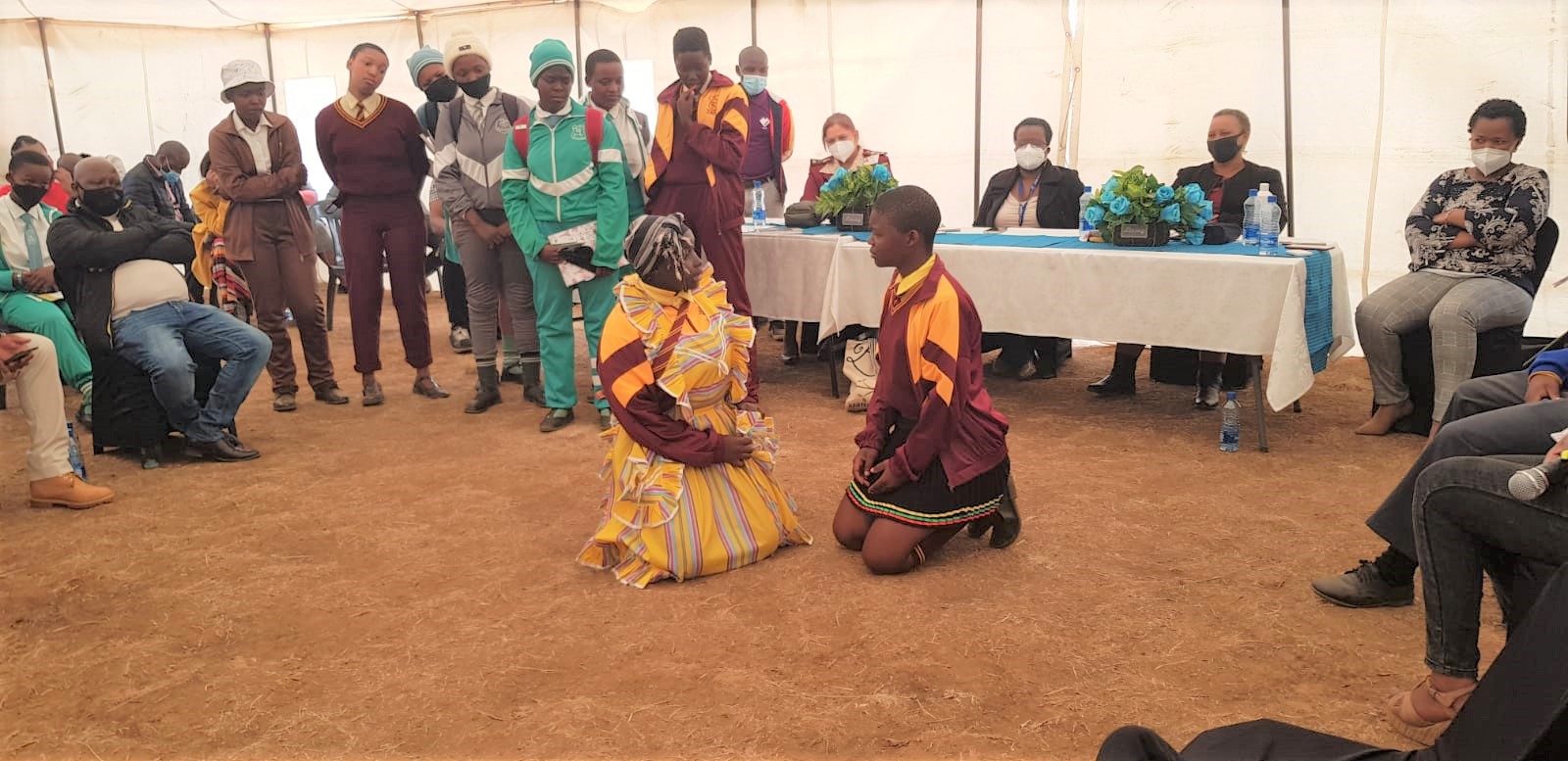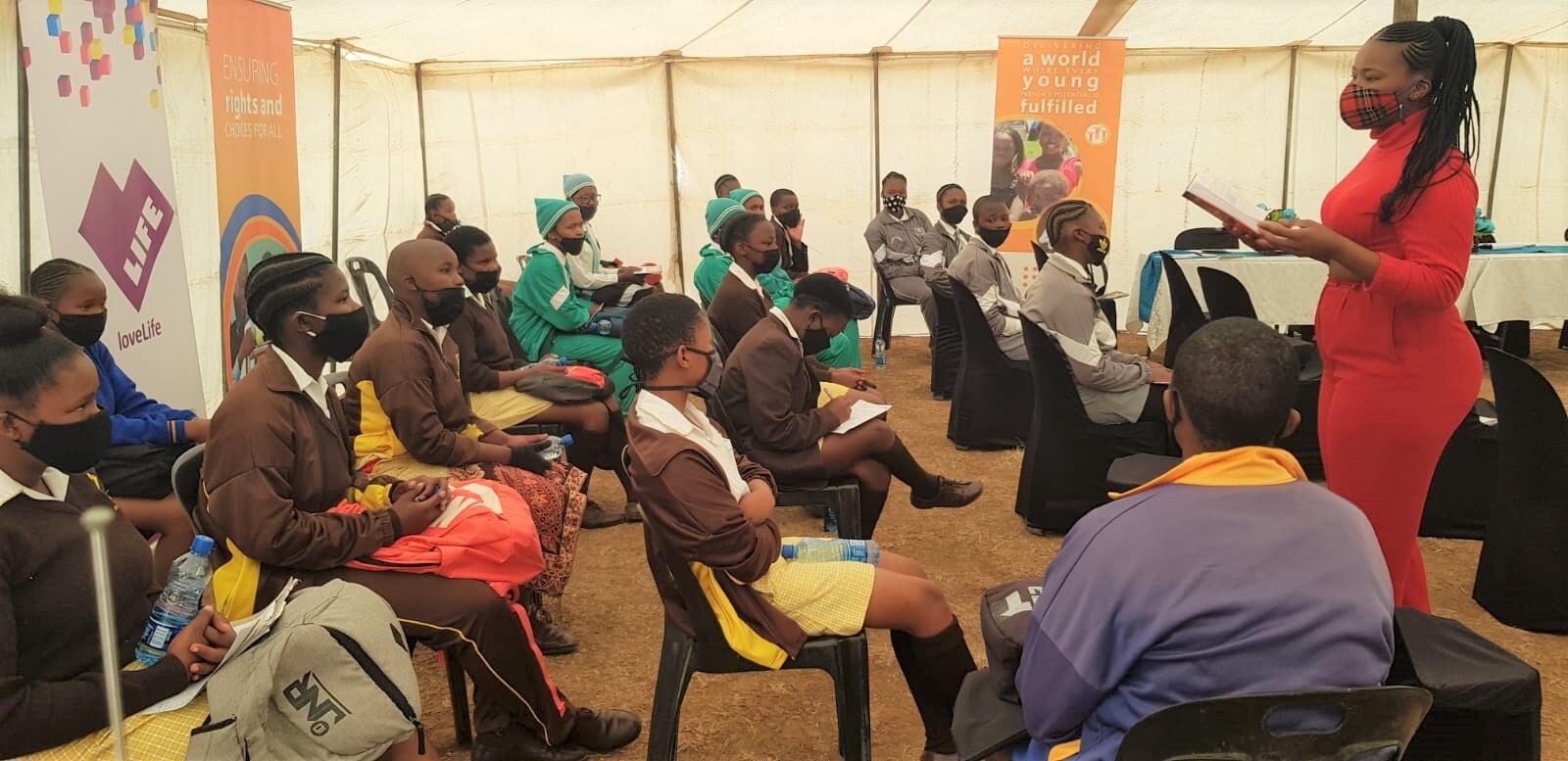In an attempt to respond to the high incidents of early and forced marriages prevalent in UThukela district in KwaZulu Natal, on 26 August 2020, UNFPA and partners convened a dialogue to address the issue. Held at the Injisuthi sport grounds in UThukela, 65 young girls, between the ages 15- 18, with their teacher aides from neighbouring schools, were invited to participate and attend the dialogue. The main aim of the event was to create an awareness on the negative impacts of early and forced marriages in the catchment area and to explore the root causes of the behaviour. It also sought to empower the girls in exercising their rights to education and making the link between early, forced marriage as a form of sexual and gender based violence (SGBV). The event took place against the backdrop of COVID-19 challenges and therefore all COVID-19 protocols of social distancing and wearing masks were observed. Participants were given a bottle of sanitizer, which was supplied by the Mayor’s office.
Stakeholders, such as local Traditional leadership, the departments of Health, Social Development and Education and loveLife, collaborated to ensure the success of the event. Health Systems Trust (HST) supported the dialogue by providing screening and testing services to the young people in attendance: 13 HIV tests, 6 COVID-19 tests with all 65 participants completing pre-screening and 8 girls accepted contraceptive Family Planning services. During the dialogue, DSD made reference and shared information on the Victim Empowerment services available in the area and the locations of “White Door” centres, where victims of abuse can reach out and receive 3-month shelter support.
Moderated by the energetic and lively groundBREAKERs from loveLife, young girls were engaged on minimising risky behaviours and reducing HIV, STIs, Teenage Pregnancy and GBV incidence rates. UNFPA further endorsed a zero tolerance of early, underage marriage and zero tolerance of SGBV.
Poetry and drama, a creative way of reinforcing key messages on early and forced marriages, depicted the reality rampant in the community, where men abduct young girls and force them to be young wives. Partnering with community radio, Nqubeko FM, the live dialogue was aired live, enabling the messages to reach those far and wide. The community radio station currently has a listenership reach of 88000 and 32000+ Facebook followers.

During the event it was observed that the girls had very good knowledge and articulated very good understanding of the topic. They knew their rights around early and forced marriages and where to seek help. They also made it clear that they had a wish to complete their studies and to aspire to better careers. One major barrier identified was that some girls were afraid to express themselves and speak to their elders about such topics. Further to this one brave girl, narrated her experience of an older man forcing her to get married when she was just 15 years old. Initially her mother was supportive of the idea of marriage, until she with the help of a teacher, convinced the mother to change her views. This led to the mother taking action with the law and got a protection order against the man. The girl also indicated that many young girls are experiencing the similar fate but are too afraid of their families to voice their concerns and speak up.
An outcome of the dialogue that UNFPA and its partners will engage further on is the recommendation that a follow on dialogue with parents, caregivers, teachers and other community structures is important to change social behaviour patterns in the community.


